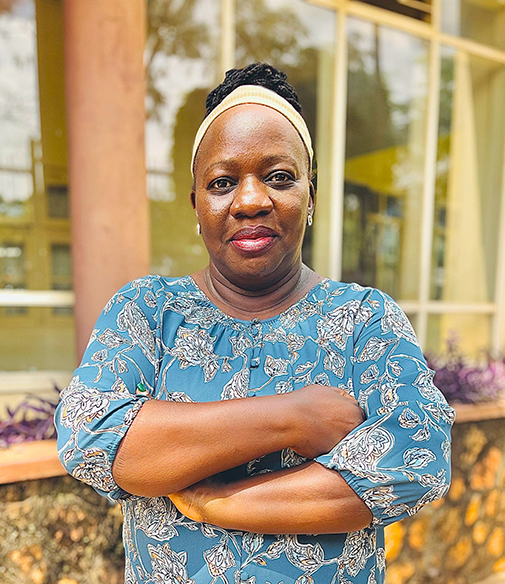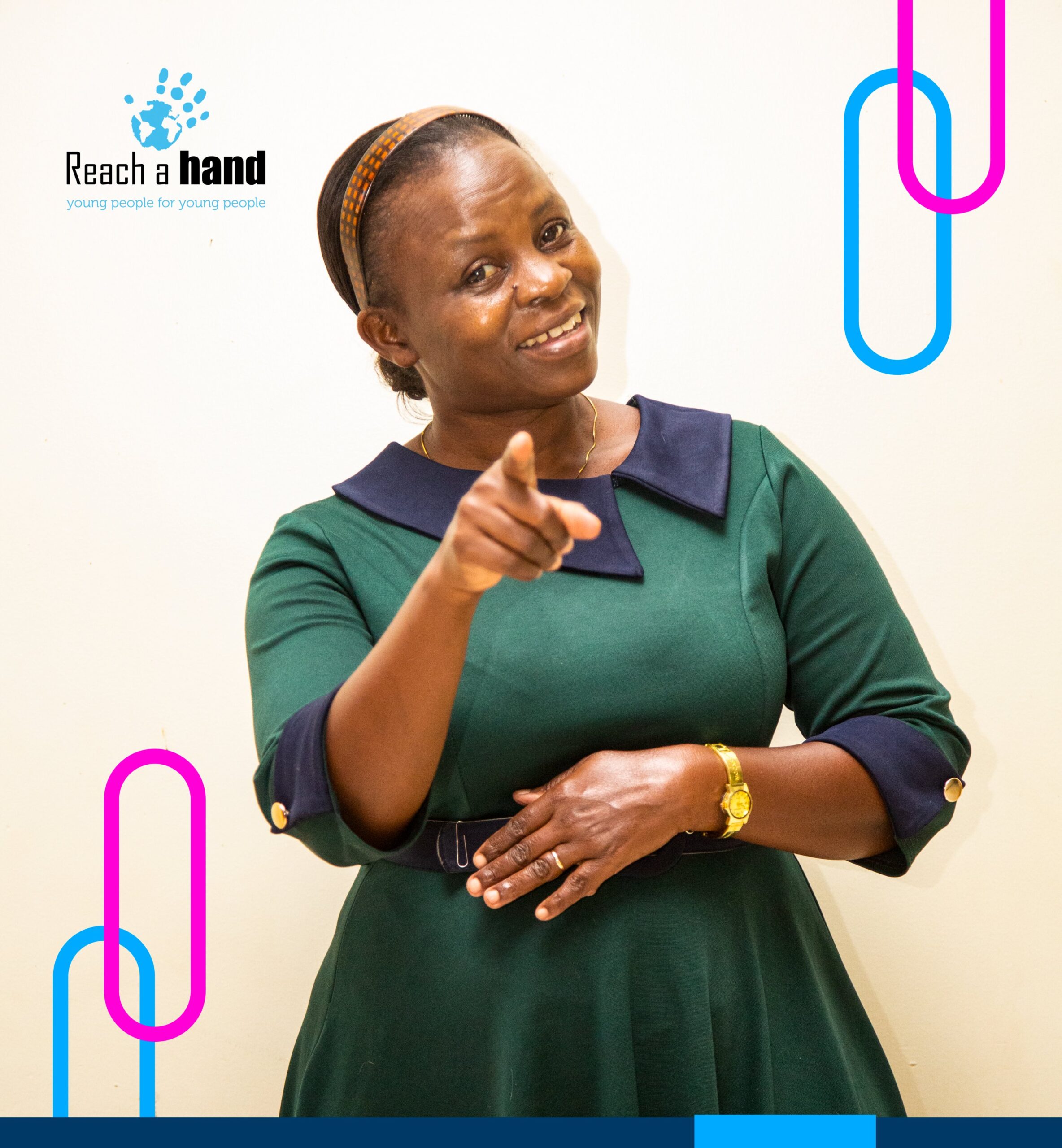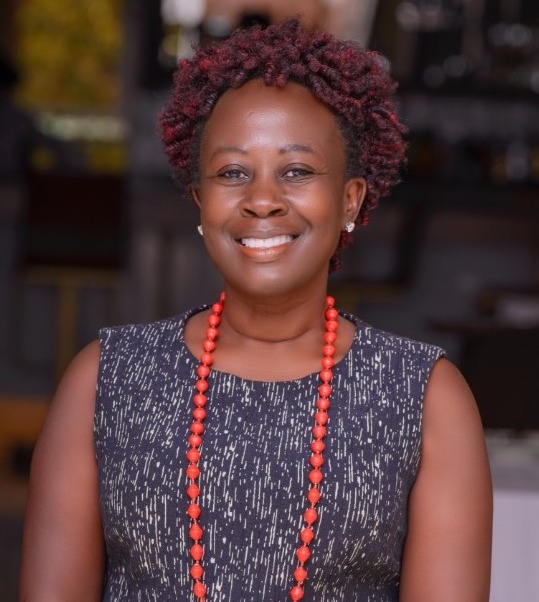Recently the Palliative Care Association of Uganda (PCAU) hosted a moving webinar that brought together health professionals, storytellers, and advocates to share what keeps them hopeful and fulfilled as they care for patients with life-limiting illnesses. The session was part of PCAU’s series of activities leading up to the 5th Uganda Conference on Palliative Care.
 Moderated by a seasoned media personality in Uganda, Sophia Matovu, the webinar focused on storytelling rather than medical definitions – an opportunity to listen to the voices of those on the frontlines of palliative care, their experiences, and their resilience.
Moderated by a seasoned media personality in Uganda, Sophia Matovu, the webinar focused on storytelling rather than medical definitions – an opportunity to listen to the voices of those on the frontlines of palliative care, their experiences, and their resilience.
In her opening remarks, Sophia emphasized the importance of storytelling in palliative care. “Today we step away from the clinical definitions and hear the powerful personal stories of those who support patients, those who have reported on it, and those who live it every day. I invite you to listen with open hearts and reflect deeply as we journey together.”
She shared her own encounters with palliative care stories from Northern Uganda, including her coverage of the Road to Hope (RTH) program, which supports child caregivers. One memorable story was that of a 17-year-old boy caring for his blind, HIV-positive mother and his younger brother, also living with HIV. Through the RTH program, the family received a proper home and educational support for the children. “It was very touching,” Sophia said. “At such a young age, he was forced to become a father figure, but the program gave them dignity and hope.”
Stories from the field
Denis – JOY Hospice Mbale
Denis, a palliative care clinician with nine years of experience, shared two cases that illustrate the life-changing impact of pain control and holistic care.
The first was a 44-year-old mother with advanced breast cancer. When she arrived at JOY Hospice in severe pain, she had lost hope. Within days of receiving proper pain management with morphine, her pain reduced, and she regained the ability to sleep, eat, and resume daily activities. She even rejoined her local Village Health Team meetings and walked long distances to attend community events. “What I learned,” Denis reflected, “is that uncontrolled pain disrupts not only the patient’s life but also the family and community around them. When we control pain, we restore dignity.”
His second story was of Andrew, a 19-year-old with sickle cell disease. Abandoned by his parents, Andrew was raised by his uncle in difficult circumstances. Despite recurrent painful crises and hospitalizations, he remains determined to complete school and become an engineer. Denis highlighted both the resilience of patients and the emotional toll on providers. “At first, it was very hard. I almost gave up. But over time, you build resilience. You find strength in family, quiet reflection, and in the small wins we achieve for patients.”
Joseph – Rays of Hope Hospice Jinja (RHHJ)
Joseph, a clinical officer, described the home-based care model of RHHJ, which serves patients across 11 districts in Busoga region and beyond. The team reaches patients where they are – bringing morphine and essential medicines free of charge, providing psychosocial support, and conducting community education to dispel myths and misconceptions about cancer and other chronic illnesses.
He told the inspiring story of Richard, a young man living with both HIV and hepatitis B. When he first came to RHHJ, he was weak and hopeless due to untreated complications. After being supported with medicines and counseling, his health improved dramatically. Today, Richard rides his father’s bicycle across Namayingo and Busia districts, linking other patients to hospice care. “Richard has already referred six patients to us,” Joseph shared proudly. “He has become a beacon of hope, living proof that palliative care restores life and dignity.”
When asked about common myths, Joseph explained: “Many in our communities still attribute cancer to witchcraft. This delays treatment. But when someone like Richard, who lives among them, speaks up and refers others, the myths begin to break.”
 Olivia – Sign language interpreter, NBS Television
Olivia – Sign language interpreter, NBS Television
Olivia shared her unique perspective of supporting deaf clients with palliative care needs. She recalled PCAU’s earlier training that opened her eyes to the holistic nature of palliative care – addressing physical, emotional, social, and spiritual needs. Since then, her work has focused on bridging the communication gap that often leaves deaf patients isolated.
“Deaf clients face the challenge of not being able to express their pain to families or health workers. Without an interpreter, they are left in silence. My role is to give them a voice,” Olivia said. Her work has not been without challenges, but the trust she has built has been deeply rewarding. She recounted how a client once refused to see another interpreter, insisting, “If you bring anyone else, we shall sue you.” That moment of trust, Olivia explained, motivates her to continue despite the difficulties.
She also emphasized the need for sign language in public health messaging and called for the revival of PCAU’s effort to develop a sign language manual for palliative care.
Sarah – Kawempe Home Care (KHC)
Sarah, Program manager and palliative care nurse at KHC shared her passion for caring for children with cancer. She described the heartbreaking situation of children who once slept on hospital verandas, begging for food while undergoing long-term chemotherapy. KHC has since provided a home for many of these children, enabling them to receive treatment in dignity.
“When children are off the streets, can eat, sleep well, and play, it gives me joy. A child deserves to be free from pain and to feel loved,” Sarah said. Also shared success stories, including that of Eddie, a boy abandoned at Mulago Hospital, who – against all odds – completed his Senior 6 exams while admitted and is now studying civil engineering at Makerere University. Her message was: when children are given love, care, and stability, they thrive.
 Esther – Telling untold stories, the Journalist’s perspective
Esther – Telling untold stories, the Journalist’s perspective
Journalist Esther offered a different angle, reflecting on her role in documenting palliative care. She emphasized that journalism is not just about reporting – it is about advocacy and challenging misconceptions.
“Many people think palliative care is only for the dying. But stories of survival, hope, and improved quality of life show otherwise,” Esther explained. She highlighted her recent work covering the life and legacy of the late Dr. Anne Merriman, founder of Hospice Africa Uganda. For Esther, Merriman’s story symbolizes how one person’s vision can inspire systemic change, demonstrating that even in Uganda, ordinary people can leave extraordinary legacies.
Throughout the webinar, a common thread emerged: hope is sustained when stories are told. Whether through Olivia’s interpretation, Sarah’s caregiving, or Esther’s journalism, these voices remind us that palliative care is not only about easing pain – it is about affirming life, building trust, and restoring dignity. As moderator Sophia noted, “Empathy is at the heart of palliative care. Without it, you cannot truly understand the person you are caring for.” This PCAU webinar was a timely reminder that stories heal – they heal the teller, the listener, and the communities that carry them forward.
